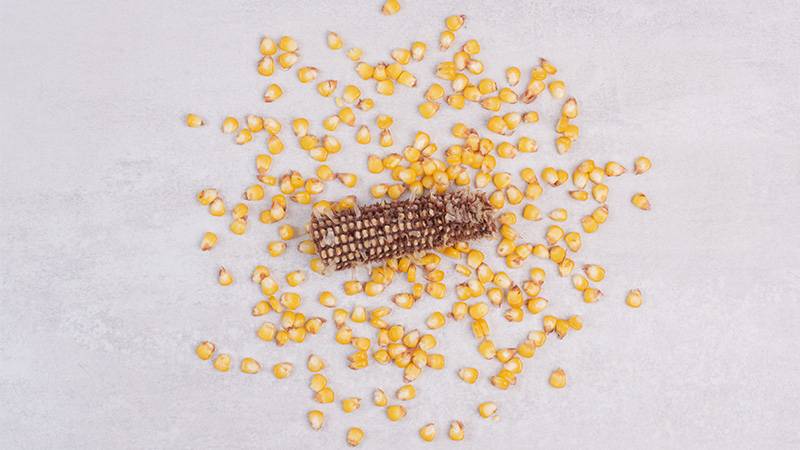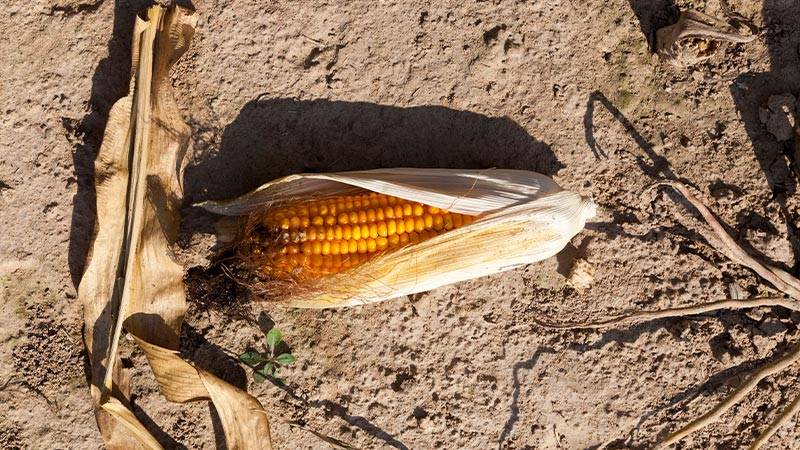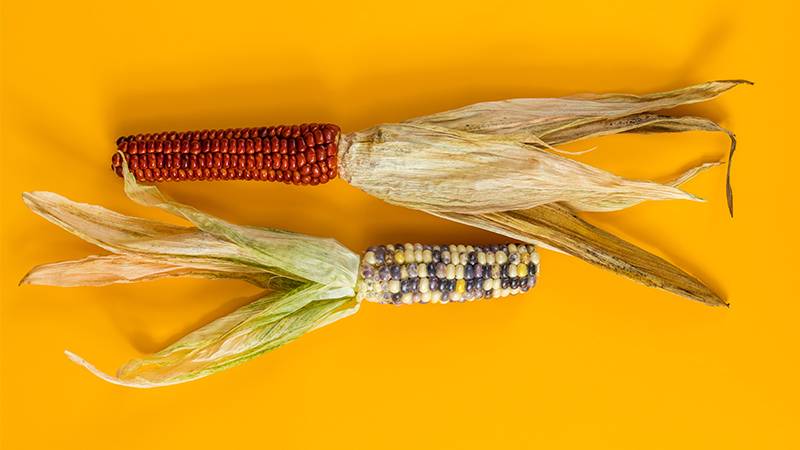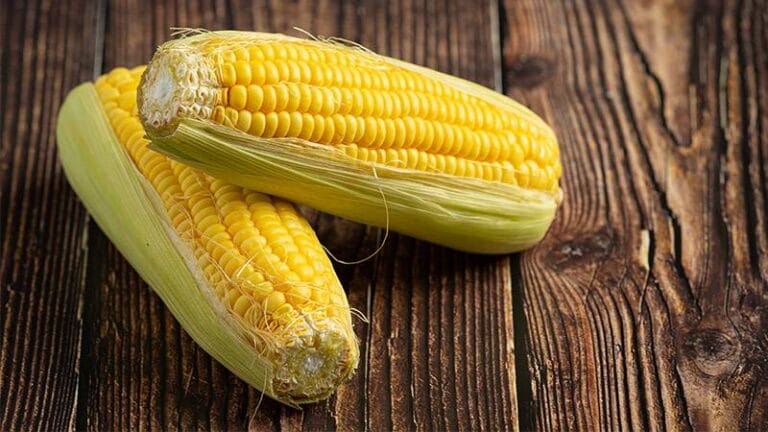When I started my garden, I was left with a pile of corn cobs after a family feast. I wondered, “Can I compost these?”
That simple question sparked my journey into composting. Corn cobs might seem tricky, but they’re actually a great addition to a compost pile. In this guide, I’ll explain how to compost corn cobs, their benefits, and even some creative ways to reuse them.
Let’s turn those leftovers into something your garden will love!
Can You Compost Corn Cobs?
Yes, you can compost corn on the cobs! These sturdy leftovers from summer barbecues and family dinners are great for composting. They are classified as brown material, which means they’re rich in carbon. This carbon helps balance your compost pile and supports the microorganisms that break down organic matter.
Corn on the cobs take longer to break down because they are tough and fibrous. Despite the slow process, they are worth adding to your compost. Their carbon content creates a healthy environment for microbes, which boosts soil fertility and supports plant growth. Composting corn cobs also keeps organic waste out of landfills, helping the planet.
To speed up their decomposition, you can break them into smaller pieces or soak them in water. These steps can make the process faster and more efficient, ensuring your compost pile gets all the benefits without the wait.
The Science Behind Composting Corn Cobs
To understand the value of corn cobs in composting, it helps to look at the science behind the process. Composting relies on microorganisms like bacteria, fungi, and even small creatures like insects and earthworms. These tiny workers break down organic waste into nutrient-rich compost that improves soil health.
Corn cobs play a key role as a carbon source in this process. Classified as brown material, they balance the nitrogen-rich green materials, like fruit and veggie scraps. This balance is essential to keep the compost pile healthy and avoid issues like bad odors or pests.
One unique feature of corn cobs is their slow decomposition rate. Their hard, fibrous structure takes longer to break down compared to softer materials. While this can be a challenge, it also means they provide a steady source of carbon, supporting the composting process over time.
How to Compost Corn Cobs
Getting started with composting corn cobs takes a little prep work. Preparing them properly ensures they break down efficiently and benefit your compost pile.
In this section, we’ll look at simple ways to get corn cobs ready for composting and provide an easy step-by-step guide to composting them effectively.

Preparing Your Corn Cobs for Composting
Before tossing those corn cobs into your compost pile, it’s essential to prepare them properly to facilitate a smoother decomposition process.
Here are some methods and considerations, including for those cooked corn cobs from your delightful meals:
- Raw Corn Cobs: Simply break them into smaller pieces to speed up the decomposition process.
- Cooked Corn Cobs: Ensure they are free from butter, oil, or any other non-compostable substances before adding them to the pile.
- Corn Husks: Don’t forget that corn husks are also a great addition to your compost, adding green material to balance the brown.
- Disease-Free: Ensure the cobs are disease-free to prevent any pathogens from entering your compost pile.
Step-by-Step Guide to Composting Corn Cobs
Now that your corn cobs are prepared, let’s delve into the detailed process of composting them:
1. Start with the Right Balance
Begin with a good mix of green and brown materials to establish a balanced compost pile.
2. Add Your Corn Cobs
Introduce your prepared corn cobs to the pile, ensuring they are well distributed.
3. Turn Your Pile Regularly
Regular turning will facilitate aeration, encouraging a faster decomposition process.
4. Maintain Moisture Levels
Ensure your compost pile maintains a dampness level akin to a wrung-out sponge to foster the right environment for microbial activity.
5. Patience is Key
Given the slow decomposition rate of corn cobs, patience is vital. It might take a few months for them to break down fully.
6. Harvest Your Compost
Once the corn cobs have decomposed, harvest your compost and enrich your garden soil with this nutrient-dense material.
The Composting Timelines: What to Expect
Knowing how long corn cobs take to decompose and the factors that affect this process is key to successful composting. Understanding these details helps set realistic expectations and ensures your compost pile stays on track.

Corn cobs take a considerable amount of time to break down compared to other compost materials. Here is a general timeline that you can expect:
- 1-2 months - Slight breakdown, the cobs begin to soften
- 3-6 months - Further breakdown, with noticeable decomposition
- 6-12 months - The cobs disintegrate significantly, blending with other compost materials
This timeline gives you a roadmap of the corn cob decomposition process, helping you plan your composting activities accordingly.
Factors Influencing the Decomposition Rate
Several factors can influence how quickly corn cobs decompose in your compost pile. Understanding these can help you optimize the process:
Particle Size
Smaller pieces decompose faster. Breaking the cobs into smaller sections can speed up the process.
Moisture Level
Maintaining the right moisture level facilitates microbial activity, enhancing decomposition.
Aeration
Regular turning of the compost pile ensures proper aeration, promoting faster breakdown.
Temperature
A warmer environment can speed up the decomposition process, but it’s essential to avoid extreme temperatures that can kill beneficial microbes.
Pros and Cons of Composting Corn Cobs

The Benefits
Composting corn cobs can be incredibly beneficial, both for the environment and your garden soil. Here are some of the advantages:
Soil Health
Corn cobs help in improving soil structure, enhancing its ability to retain moisture and nutrients.
Carbon Source
Being a brown material, they are a rich source of carbon, promoting a balanced compost pile.
Waste Reduction
By composting corn cobs, you contribute to reducing organic waste in landfills, promoting environmental sustainability.
Nutrient-Rich Compost
The resulting compost is nutrient-dense, providing essential nutrients to your plants.
The Downsides
Despite the benefits, there are a few downsides to composting corn cobs that you should be aware of:
Slow Decomposition
Corn cobs take a longer time to decompose compared to other materials, requiring patience.
Attracting Animals
The corn cobs can potentially attract animals to your compost pile, posing a risk of pests.
Acidity Levels
Corn cobs can slightly increase the acidity of your compost, which might not be suitable for all plants.
Space
Due to their size, corn cobs can take up considerable space in your compost pile, limiting the addition of other materials.
Beyond the Compost Pile: Other Uses for Corn Cobs
Composting corn cobs is great, but it’s not the only eco-friendly option. There are plenty of creative and sustainable ways to repurpose corn cobs that go beyond the compost pile.
Let’s explore them!
Can Corn Cobs Be Burned?
Yes, corn cobs can be burned, and they have been used as a biofuel in various regions globally. Burning corn cobs can provide a source of heat in the colder months, offering a sustainable alternative to other forms of fuel.
However, it is essential to do this responsibly to manage emissions and ensure safety. It’s a practice that aligns with the principles of environmental sustainability, turning waste into a resource.
Creative Uses for Leftover Corn Cobs
Apart from composting and feeding wildlife, there are other creative ways to use leftover corn cobs. Here are some ideas:
Craft Projects
Use corn cobs to create rustic art pieces or decorations.
Mulch
Corn cobs can be used as a natural mulch in your garden, helping to retain soil moisture.
Making Broth
Corn cobs can be used to make a nutritious and flavorful broth, adding depth to your soups and stews.
Frequently Asked Questions (FAQ)
Corn cobs can take anywhere from 1 to 12 months to fully decompose in a compost pile, depending on various factors including the composting conditions and how the cobs are prepared.
To shred corn cobs for compost, you can use a garden shredder or manually cut them into smaller pieces using a machete or a sturdy knife to facilitate quicker decomposition.
Yes, corn cobs can be a good mulch. When shredded, they help in retaining soil moisture, preventing weed growth, and slowly releasing nutrients into the soil as they decompose.
You can recycle corn cobs by composting them, using them as a biofuel, creating art projects, making broth, or even using them as a natural chew toy for dogs, among other creative uses.
Compost worms can consume corn cobs, but given the hard and fibrous nature of the cobs, it takes a considerable time for worms to fully break them down. It’s best to add them to the worm bin in smaller, softened pieces.
Conclusion
Corn cobs might seem like just kitchen scraps, but they’re actually a powerful tool for sustainability. By composting corn cobs, you’re not just reducing waste—you’re creating nutrient-rich compost that helps your garden thrive. It’s an easy way to make a big difference for your plants and the planet.
So, next time you’re cleaning up after a family feast or BBQ, don’t throw those corn cobs away. Toss them in your compost pile and let nature do the work. A greener, healthier garden is just a corn cob away!


